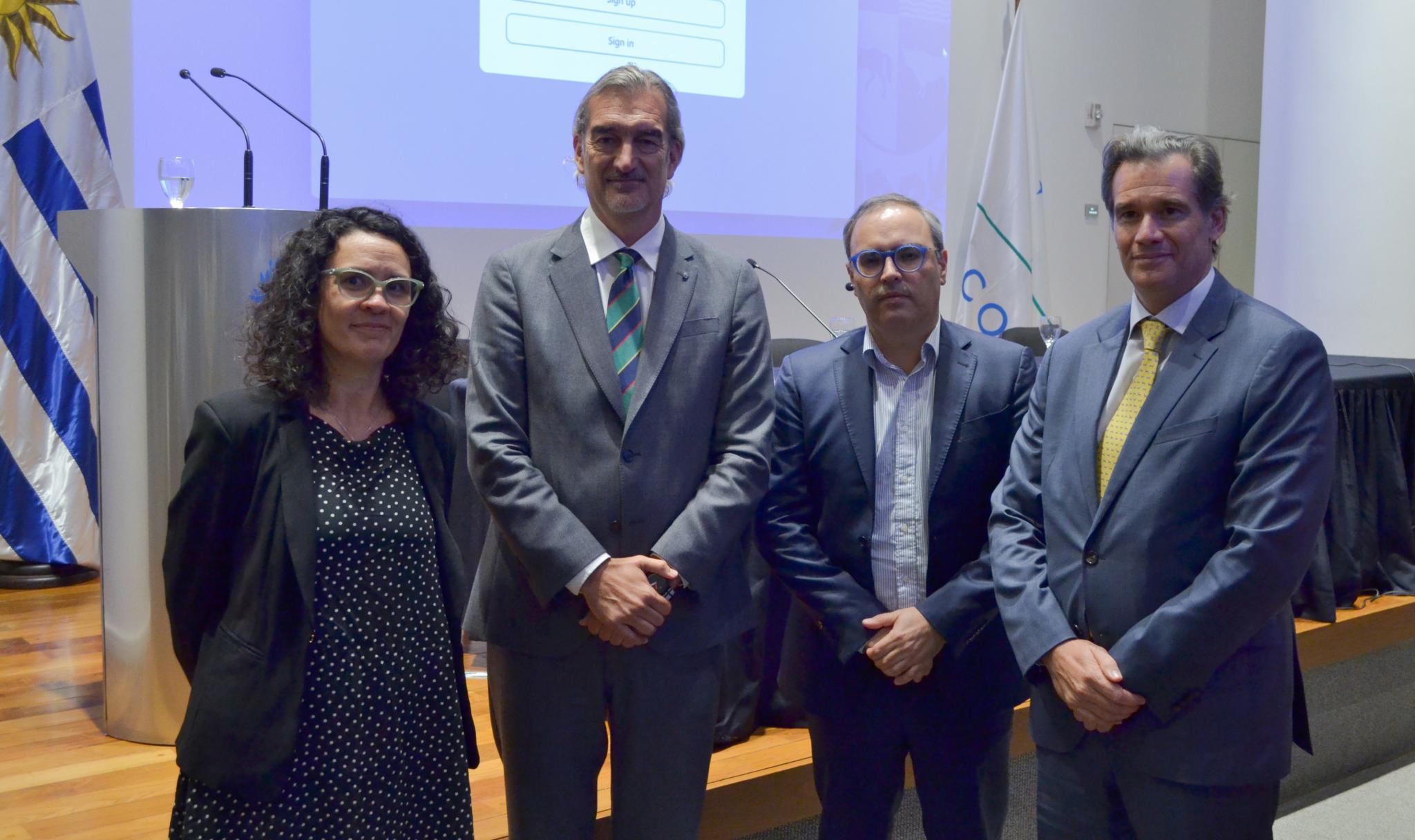Uruguay launches official national MPI
On 19 February, the National Institute of Statistics (INE) of Uruguay launched the national Multidimensional Poverty Index (MPI) to monitor the country's progress in eradicating poverty in all its forms. The MPI is now an official and permanent tool that complements traditional monetary poverty measurement by analysing how people experience poverty in Uruguay.
The presentation of the national MPI was carried out by the Director of the INE, Diego Aboal; Pablo Ruiz, Resident Coordinator of the United Nations; Alfonso Fernández de Castro, Representative of the UNDP in Uruguay; Diego Zavaleta for the UNDP; Ricardo Nogales for the Oxford Poverty and Human Development Initiative (OPHI); and, Andrea Macari Director of the Sociodemographic Statistics Division of the INE.
In Uruguay, 18.9% of the population lives in multidimensional poverty (more than 676,000 people). This means that they are deprived in at least 4 or more of the 15 indicators that make up the dimensions of education, housing conditions, basic household services, social protection and employment.
The MPI offers insights on the intensity of poverty experienced by multidimensionally poor people. Nationally, people living in multidimensional poverty in Uruguay are deprived, on average, in approximately 5 of the 15 (33.7%) indicators in the measure. The data obtained in the MPI reveal that 17.5% of the population lives in poor households where at least one of its adult members is deprived in years of schooling. The MPI highlights how 13% of the population lives in poor households where at least one adult member faces informal employment. In addition, 11.2% of the population lives in multidimensionally poor households with problems in their housing conditions.
Multidimensional poverty affects the population in the interior of the country to a greater extent than in the capital of Montevideo. In the interior, 21.4% of the population lives in multidimensional poverty. This proportion drops to 15.1% in Montevideo. However, on average, the intensity of the poverty of both groups is comparable. The poor population is deprived in 5 of the 15 indicators used in the index in both cases.
The Uruguay MPI has been developed under the leadership of the INE in a strategic technical alliance with the UNDP and OPHI of Oxford. The process of building the MPI began in 2022 and included important advances made by the Ministry of Social Development (MIDES), robust academic studies, current laws, as well as national development plans. In addition, consultations were held with public institutions and experts on the dimensions and indicators included in the measure. Following international best practices, the development process of this new public policy tool was highly participatory and was launched with a strong consensus among its future users on its technical rigour and the relevance of each of its components.
From now on, the INE will calculate the MPI for Uruguay using data from the Encuesta Continua de Hogares (Continuous Household Survey) (ECH). The first report uses the most recent data (2024) from this survey. The annual frequency of the ECH will permit thorough monitoring of multidimensional poverty and opens the possibility of a more in-depth analysis of the effectiveness of public policies and poverty-fighting programmes.
The Uruguay MPI offers a more complete picture of poverty in the country. This tool makes it possible to identify the places and population groups most affected by poverty, as well as the contribution of the different indicators to the population's experience of poverty, with the aim of providing strategic guidance to leave no one behind and to reduce poverty and inequalities.
It is emphasized that the MPI does not replace the measurement of monetary poverty, but rather complements it to improve the targeting of public actions aimed at eradicating poverty in all its forms. The measurement of multidimensional poverty is essential to better guide the strategies, policies and programmes that address the different aspects of poverty and improve the targeting of the populations that need it most.
During the launch, the director of the INE, Diego Aboal, pointed out that the Multidimensional Poverty Index “is a long-standing project and its implementation is very important” and defined it as a historic event and “a gain for the country.” He said “With the MPI we are going to look at many places (…) it will give us a global vision and a more structural view.”
In addition, Diego Aboal highlighted the work carried out by the Division of Sociodemographic Statistics and the support received from the United Nations, UNDP and OPHI. Pablo Ruiz, Resident Coordinator of the United Nations, highlighted “the high-quality products launched by INE” and said “A country's National Statistics Institute is in itself an indicator of democratic health, and in that sense, we can say that Uruguayan democracy is in good health.”
For his part, the UNDP Resident Representative in Uruguay, Alfonso Fernández de Castro, mentioned that it is “A public policy tool. On the one hand, to measure and do so in a sustained manner, but also to be able to design public policies.”







